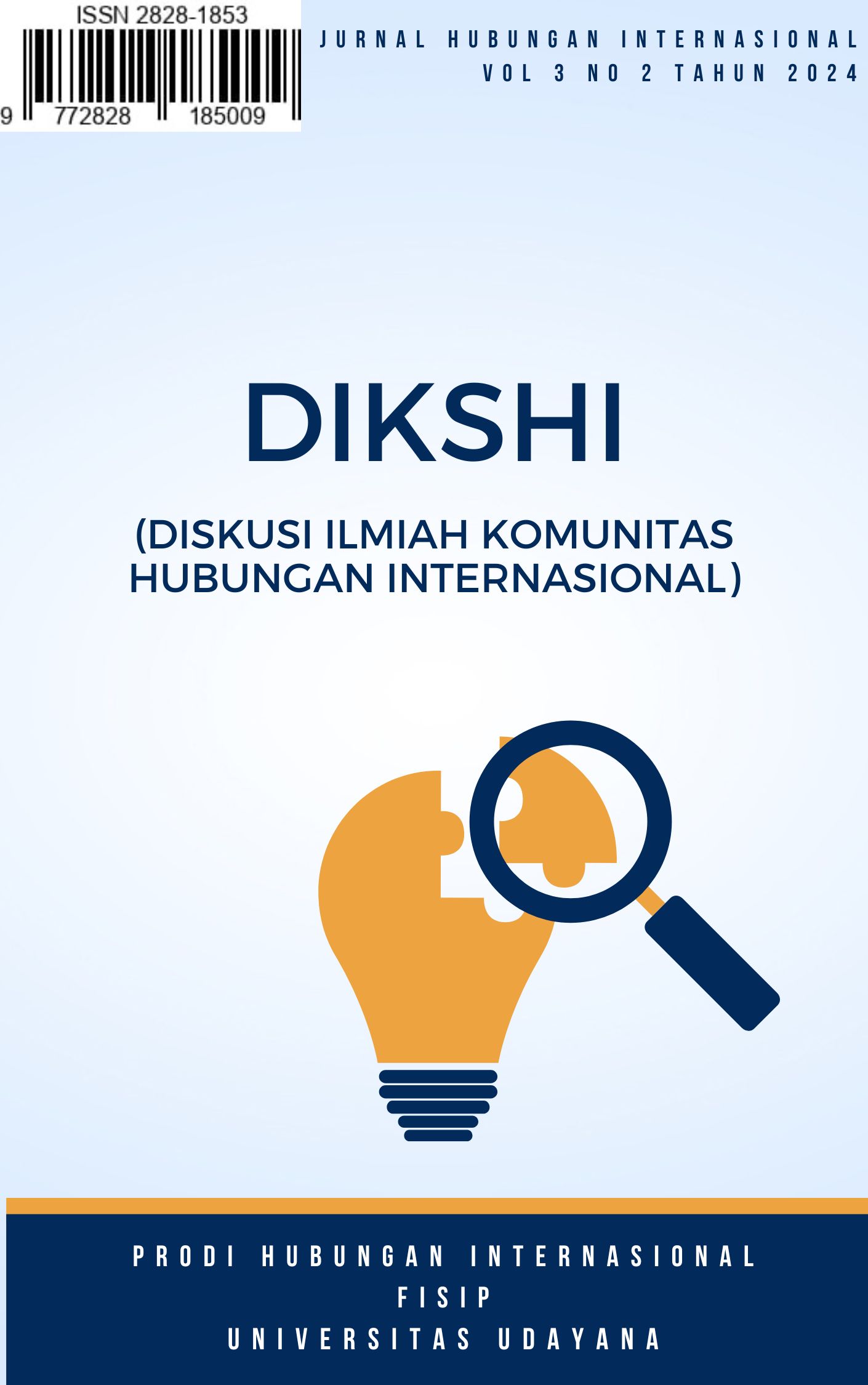Australia's Leadership Strategy in Stemming the Arrival of Refugees and Asylum Seekers from Indonesia's UNHCR Post
Abstract
This study aims to analyze Australia's policy strategies to address the issue of refugees and asylum seekers who are considered to be threatening their domestic security. The growing issue of transnational crime causes a bad perception of the arrival of refugees and asylum seekers. Australia considers the arrival of refugees and asylum seekers as a potential entry point for transnational criminals into their country. This research was analyzed qualitatively by using the concept of national strategy and national security. The discussion focuses on the form of Australia's leadership strategy which executes the closure of the UNHCR refugee transit post and asylum seekers in Indonesia. This policy is Australia's effort to reduce the number of arrivals of refugees and asylum seekers, both legal and illegal through the transit post. Based on the leadership strategy analysis, the authors identify that Australia's superior position is able to initiate the Bali Process with Indonesia, as one of the programs created to improve regional security, and specifically in terms of handling the security of refugees and asylum seekers. Furthermore, as a form of initial implementation of this cooperation, Australia also has an agenda to help improve Indonesia's capabilities in the security sector. But gradually, Australia issued an Anti-resettlement policy by refusing immigrants who came from Indonesian transit posts, as well as closing the legal access of immigrants from these posts. In this case, Australia is considered capable of carrying out its leadership strategy because it has succeeded in “dictating” Indonesia in an agreement regarding the handling of refugees and asylum seekers which is more favorable to Australia's national security








